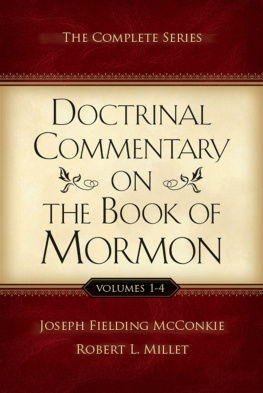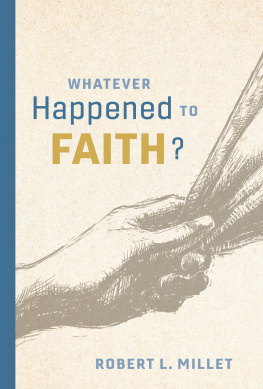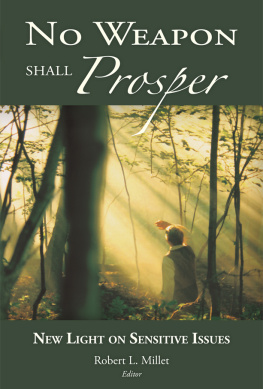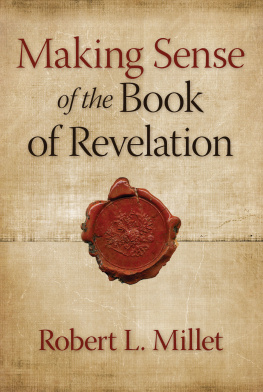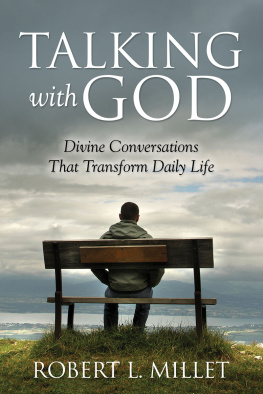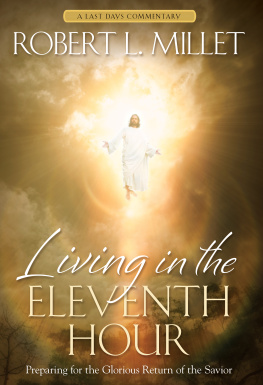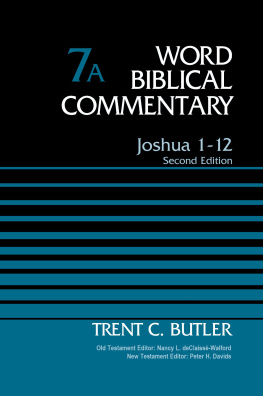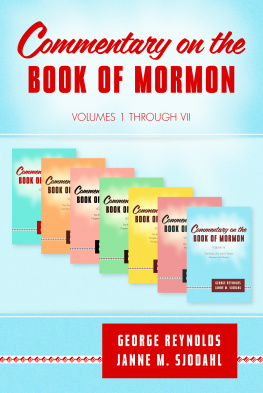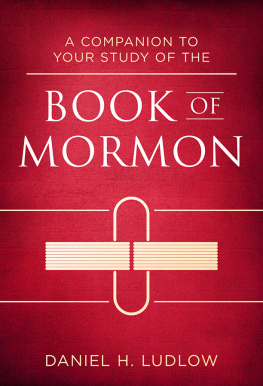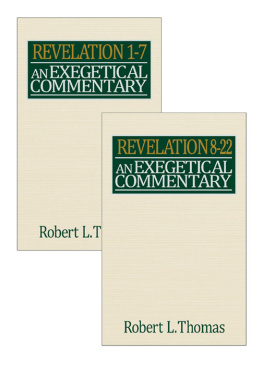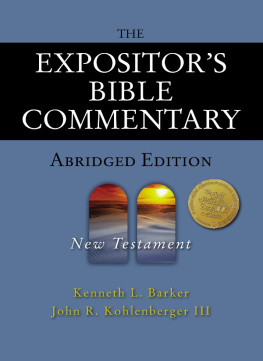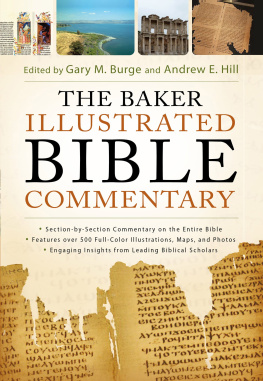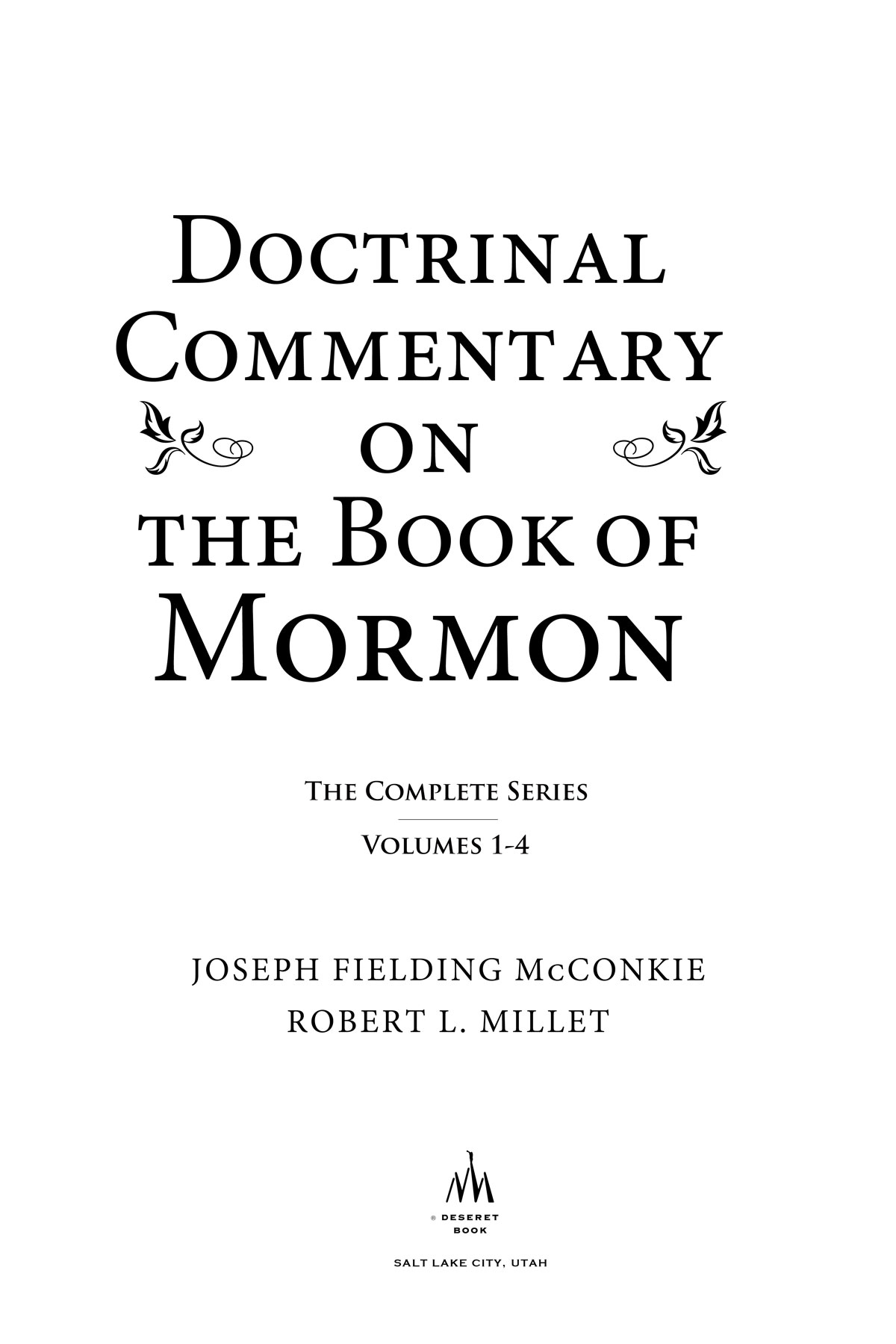1992 Bookcraft, Inc..
All rights reserved. No part of this book may be reproduced in any form or by any means without permission in writing from the publisher, Deseret Book Company (permissions@deseretbook.com), P.O. Box 30178, Salt Lake City Utah 84130. This work is not an official publication of The Church of Jesus Christ of Latter-day Saints. The views expressed herein are the responsibility of the author and do not necessarily represent the position of the Church or of Deseret Book. Deseret Book is a registered trademark of Deseret Book Company.
Doctrinal Commentary on the Book of Mormon, Volume One
Preface
The only justification for a commentary on the scriptures is an expanded understanding of holy writ and of the manner in which its teachings apply in our lives. To proceed on any other basis, no matter how interesting the material presented, is to create a spiritual eclipse or to upstage the divine message with something that by its very nature is of lesser importance. Some, in a rather unthinking manner, have even gone so far as to say there should be no scriptural commentariesthat we should only read the scriptures themselves. Were we to take such a suggestion literally, we would no longer have discourses on the scriptures at general and stake conferences or in sacrament and other meetings, and we would not have Sunday School and other classes which we attend to obtain a greater understanding of that which we are reading in holy writ. The scriptures themselves direct us to teach one another the doctrine of the kingdom (D&C 88:77).
The issue is not whether we should have commentary on the scripture; indeed, much of our scripture is commentary by one prophet upon the words of another. (In large measure, the Book of Mormon is a commentary on the teachings of Bible prophets.) Rather, the issue is what commentary is of greatest worth, and where we ought to center our attention. The obvious answer to that question is the saving principles of the gospel of Jesus Christ. To that end the authors have chosen in the writing of this commentary on the Book of Mormon to confine their attention almost exclusively to the doctrines espoused within the book, leaving it to others to deal with such matters as culture, history, and geography, as well as internal and external evidences of the book. In so doing they do not seek to suggest that such matters are without importance. They are, however, judging them to be secondary to the doctrines and testimony of the prophets, whose words have been restored to us by the grace of God.
Here the choice has been made to include the scriptural text with the commentary in order to keep the readers attention more closely fixed on the scripture. This pattern is departed from in 2 Nephi (the writings of Isaiah) and in the latter part of the book of Alma, where history dominates the text. In some instances the commentary will be repetitious. This is simply because the scriptures themselves are repetitious. The authors see this as very deliberate on the Lords part. Moroni, it will be remembered, visited Joseph Smith three times in one night and then again the next day with the same message. Repetition is the mother of learning.
As to style, the primary guideline has been brevity. It has not been the intent to give detailed or exhaustive explanations. As the author of Ecclesiastes observed, Of making many books there is no end; and much study is a weariness of the flesh (Ecclesiastes 12:12).
The authors recommend that when using this book the reader have in hand the modern editions of the LDS scriptures, so that he may take advantage of the material in their footnotes, the Topical Guide, and the other supplementary information they provide.
The authors, of course, are responsible for what they have written in this bookno one else. To the extent that the reader can improve upon what they have done, he is obligated to do so. A marvelous spirit attends the study of the Book of Mormon. It is the authors hope that this work will result in a greater love and appreciation for the book. It has had that effect upon them.
Acknowledgments
Special appreciation is extended to Steve Evans, General Manager, and Cory Maxwell, Editorial Manager, of Bookcraft Publishers, who have encouraged us in this project from its inception; also to George Bickerstaff and Dan Hogan, who couple a keen editorial eye with a love for the Book of Mormon that is born of the Spirit, and who have made a valuable contribution in preparing this work for publication.
Abbreviations
The following abbreviations have been used to simplify references in the text of this work. Publication details on each source cited are listed in the Bibliography.
CR Conference Report
HC Joseph Smith, History of The Church of Jesus Christ of Latter-day Saints, 7 vols.
HymnsHymns of The Church of Jesus Christ of Latter-day Saints
JDJournal of Discourses, 26 vols.
JST Joseph Smith Translation of the Bible
New Witness Bruce R. McConkie, A New Witness for the Articles of Faith
Promised Messiah Bruce R. McConkie, The Promised Messiah
Teachings Joseph Smith, Teachings of the Prophet Joseph Smith
Testimony of the Book of Mormon
One of the most solemn oaths ever given to man is found in these words of the Lord relative to Joseph Smith and the Book of Mormon. He [meaning Joseph Smith] has translated the book, even that part which I have commanded him, saith the Lord, and as your Lord and your God liveth it is true. (D&C 17:6.)
This is Gods testimony of the Book of Mormon. In it Deity himself has laid his godhood on the line. Either the book is true or God ceases to be God. There neither is nor can be any more formal or powerful language known to men or gods. (Bruce R. McConkie, CR, April 1982, p. 50.)
We can hardly overstate the importance of this voice of truth out of the earth, these glad tidings from Cumorah (D&C 128:1920). Take away the Book of Mormon, said Joseph Smith, and the revelations, and where is our religion? We have none. (Teachings, p. 71.) The pen of man knows no more perfect witness of God and Christ, of the Atonement, of the manner by which sins are remitted, or of those doctrines that lead us back to the divine presence than the Book of Mormon. So the Spirit testifies. To such the authors humbly attest.
Safety Found in Obedience
1 Nephi 22:2731
27. And now behold, I, Nephi, say unto you that all these things must come according to the flesh.
28. But, behold, all nations, kindreds, tongues, and people shall dwell safely in the Holy One of Israel if it so be that they will repent.
29. And now I, Nephi, make an end; for I durst not speak further as yet concerning these things.
30. Wherefore, my brethren, I would that ye should consider that the things which have been written upon the plates of brass are true; and they testify that a man must be obedient to the commandments of God.
31. Wherefore, ye need not suppose that I and my father are the only ones that have testified, and also taught them. Wherefore, if ye shall be obedient to the commandments, and endure to the end, ye shall be saved at the last day. And thus it is. Amen.
2731. Nephi, following the prophetic pattern, sealed his teaching to his brothers with his testimony. That testimony included the verity of the scriptural record available to them. He enjoined his brothers to be obedient so that they might enjoy the fulness of gospel blessings.

